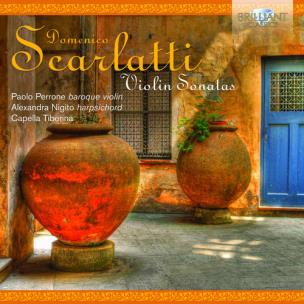- Regulamin
- Koszty dostawy
- Kontakt
- Dziś w ofercie 233 705 produktów
KSIĄŻKI
- Albumy
- Beletrystyka
- Biografie
- Dla dzieci i młodzieży
- Edukacja
- Ekonomia i biznes
- Ezoteryka
- Historia
- Informatyka
- Kalendarze
- Komiksy
- Kryminał i sensacja
- Kultura i sztuka
- Literatura faktu
- Literatura kobieca
- Literatura piękna
- Medycyna
- Nauka języków obcych
- Nauki humanistyczne
- Nauki przyrodnicze
- Nauki ścisłe
- Podręczniki
- Poradniki
- Prawo i administracja
- Przewodniki i podróże
- Psychologia
- Religia
- Sport
- Technika
- Zdrowie i uroda
ZABAWKI
- Artykuły dla niemowląt
- Bączki
- Bujaki i skoczki
- Ciągnij / pchaj
- Dla niemowlaka
- Grzechotki i gryzaki
- Karuzele i pozytywki
- Maty i centra zabaw
- Projektory i lampki
- Sortery i piramidki
- Zabawki
- Edukacyjne i kreatywne
- Figurki
- Klocki
- Lalki
- Pojazdy
- Pluszaki i maskotki
- Sport i rekreacja
- Zabawa w dom
- Zabawki drewniane
- Puzzle
- Do 200 elementów
- 201-500 elementów
- 501-1000 elementów
- Ponad 1000 elementów
- Puzzle 3D
ART. PAP
- Artykuły biurowe
- Artykuły piśmiennicze
- Bloczki i kartki samoprzylepne
- Dziurkacze
- Kalkulatory
- Nożyczki i nożyki
- Skoroszyty
- Teczki
- Wizytowniki
- Zszywacze
- Artykuły szkolne
- Akcesoria szkolne
- Modelowanie
- Notatniki i zeszyty
- Piórniki
- Plecaki i torby
- Pojemniki na śniadanie
- Pomoce naukowe
- Przybory matematyczne
- Przybory rysunkowe
- Upominki i gadżety
- Akcesoria do książek
- Artykuły balowe
- Breloki i zawieszki
- Drobiazgi, różności
- Kubki
- Oferta Świąteczna
- Papeteria, kartki i naklejki
- Skarpetki Many Mornings
- Upominki
GRY
MULTIMEDIA
- Audiobooki
- Beletrystyka
- Biografie i wspomnienia
- Dla dzieci i młodzieży
- Fantastyka
- Filozofia i religia
- Historia
- Literatura faktu i reportaż
- Poradniki
- Sensacja i kryminał
- Filmy DVD/BD
- Animowane
- Biograficzne
- Fantasy
- Horrory
- Komedie
- Romanse
- Science Fiction
- Sensacyjne / kino akcji
- Thrillery
- Muzyka CD
- Alternatywna
- Blues
- Dla dzieci
- Jazz
- Klasyczna
- Piosenka aktorska i poetycka
- Pop
- Rock
- Świąteczna i kolędy
- Akcesoria GSM
- Głośniki
- Kable i adaptery
- Klawiatury
- Myszy
- Słuchawki
PROMOCJE
ZDROWIE
LEGO

Scarlatti: Violin Sonatas
Wydawca:
Brilliant Classics
EAN:
5028421943251
oprawa:
Plastikowa
format:
14.0x12.0cm
język:
angielski
rok wydania:
2013
(0) Sprawdź recenzje
Opis produktu
Zasady bezpieczeństwa
Amid Domenico Scarlatti's extensive output of over 555 keyboard sonatas lie a small number of works that, given such traits such as figured bass, multi-movement structure and even bowing-like articulation, were probably originally written for solo instrument (such as violin) and continuo. In their third recording for Brilliant Classics, members of the Cappella Tiberina present a selection of these works, experimenting with different scorings which historical sources show were common throughout the Baroque repertoire -- hence K78 is presented on the theorbo, while K132 is played as a harpsichord solo.
The pieces are certainly not without their technical challenges; four-part chords and uncomfortable multiple-stops suggest that K88 was probably written for mandolin, though it is here skilfully negotiated by violinist Paolo Perrone. Ranging from ambitious works to more modest ones, these continuo sonatas document a fascinating corner of the Baroque master's oeuvre and simultaneously reveal the beginnings of the soon-to-emerge Classical style. Capella Tiberina's historical interpretations offer a fresh take on this engaging music.
Other information:
- Recorded on 26--29 February 2012, Christkatholische Kirche, Möhlin, Switzerland.
- Domenico Scarlatti is the creator of an Opus Major, his 555 sonatas for the keyboard. Not all of them however are unequivocally written for keyboard solo, but contain characteristics of a trio sonata, in the writing of a figured bass and multi-movement structure. These features were ignored by the first editor of Scarlatti sonatas, Alessandro Longo, but in recent times researchers went back to the sources, and find arguments for a different interpretation.
- This recording presents several sonatas in the form of a trio sonata, with a solo violin and a continuo of harpsichord, theorbo, archlute, guitar, cello and even percussion: a fascinating re-interpretation of familiar works!
- Excellent new recording by specialists of the Historically Informed Performance Practice, all members of groups such as Concerto Italiano and Modo Antiquo.
- Contains notes on the music, artist biographies and information on the instruments used.
CENA:
21,12
zł
Cena detaliczna:
24,90 zł
15%
rabatu
Najniższa cena z ostatnich 30 dni: 21,12 zł
Produkt niedostępny
Uwaga!!!
Ten produkt jest zapowiedzią. Realizacja Twojego zamówienia ulegnie przez to wydłużeniu do czasu premiery tej pozycji. Czy chcesz dodać ten produkt do koszyka?


Wybierz wariant produktu
